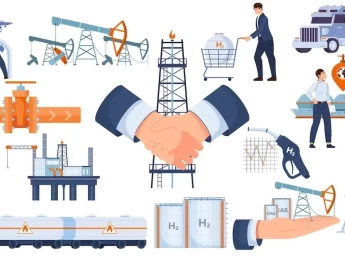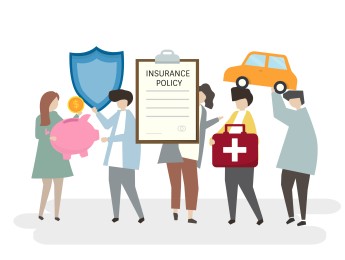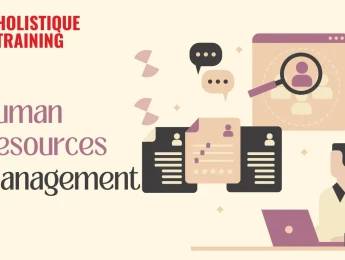Hosting official events could be a massive part of your marketing or PR practices to promote your services and products. They’re also beneficial for gaining stakeholders and investors, giving them the full pitch and experience. It's important to be prepared to create a professional event that will impress your guests and follow all of the appropriate guidelines.
Advanced protocol and events management techniques will help you to develop appropriate communication styles for remote and face-to-face events and explore opportunities to influence and negotiate with an audience.
Developing a smoothly run event with a great schedule and interesting discussions will give you a positive reputation as a business and employer, making you likely to gain more interest. The rule of reciprocity also means that if you throw an amazing event for your guests, they will feel more obliged to provide something in return, whether that be their custom, financial support or expertise.
Organising events isn’t just about planning your schedule for the day. You’ll also need to consider refreshments, health and safety concerns, risk assessments, and contractors to ensure everything goes smoothly.
Upon completion of this course, participants will be able to:
- Create an organised event schedule that suits your attendees.
- Market your event to fill your venue.
- Use a variety of communication techniques to engage with your audience.
- Identify the most appropriate venue for your event.
- Accommodate your audience’s needs and develop accurate risk assessments to determine where changes must be made.
- Develop a variety of packages to create a VIP offering.
- Set prices for your ticketed events to ensure value for money.
- Understand how your events can benefit your PR and marketing strategies.
- Create contingency plans to mitigate risk areas or last-minute changes.
This course is designed for anyone responsible for large events planning to market the business or secure funding. It would be most beneficial for:
- Business Owners
- Operations Managers
- Project Planners
- PR Professionals
- Marketing Managers
- Front of House Staff
- Sales Managers
- Account Managers
- Account Executives
This course uses a variety of adult learning styles to aid full understanding and comprehension. Participants will see presentations to view best practices in event planning and conduct group work to create a suitable schedule for a relevant event, which includes risk assessments, time planning, and budgeting.
Participants will also participate in group seminars to understand health and safety implications, contractor responsibilities, and scheduling. This will allow them to gain the best event feedback and learn how to use limited budgets to pitch their businesses.
Day 5 of each course is reserved for a Q&A session, which may occur off-site. For 10-day courses, this also applies to day 10
Section 1: How PR Professionals Can Benefit from Events
- How an event can affect the business's future.
- Communication methods to strengthen your message.
- Relationship management.
- Developing your 6-point PR plan.
- Aiming at the right audience.
- Establishing a cohesive event management team.
Section 2: Establishing the Reasons for Your Event
- What are you trying to achieve?
- Your VIPs.
- Who to invite: stakeholders, clients, and fundraisers.
- Your refreshment and bathroom responsibilities.
- Selecting the best venue.
- Stage management and establishing the goals of your key speakers.
Section 3: Scheduling & Time Management
- Your run time order.
- How long should each section last?
- Refreshment breaks to maintain interest.
- How networking can benefit you and others at your event.
- Budgeting for staff time and experience.
- Managing contractors.
Section 4: Social Media & Live Media Issues
- Advertising your event.
- How to reach the right audience.
- The effects of social media attention.
- Conducting interviews on key attendees.
- Your lasting records for memorabilia and modification.
- In-house media attention.
Section 5: Making the Experience Memorable
- Assessing your budget and deciding between essential and non-essential.
- Accommodation and extras.
- Providing outstanding service.
- Understanding multiple learning styles and communication methods.
- Seating and activities.
- Entertainment opportunities between scheduling.
Section 6: Dealing with Issues on the Day
- Your risk assessment and creating a contingency plan.
- How to deal with accidents or health and safety issues on the day.
- Corporate sign-in to gain a contact list for future events.
Section 7: Evaluation & Feedback
- How did the day go?
- Collecting feedback from attendees.
- Pain points and how to avoid them in the future.
- What would you change?
- What would you do again?
Upon successful completion of this training course, delegates will be awarded a Holistique Training Certificate of Completion. For those who attend and complete the online training course, a Holistique Training e-Certificate will be provided.
Holistique Training Certificates are accredited by the British Assessment Council (BAC) and The CPD Certification Service (CPD), and are certified under ISO 9001, ISO 21001, and ISO 29993 standards.
CPD credits for this course are granted by our Certificates and will be reflected on the Holistique Training Certificate of Completion. In accordance with the standards of The CPD Certification Service, one CPD credit is awarded per hour of course attendance. A maximum of 50 CPD credits can be claimed for any single course we currently offer.
- Course Code PM2-113
- Course Format Classroom, Online,
- Duration 5 days













